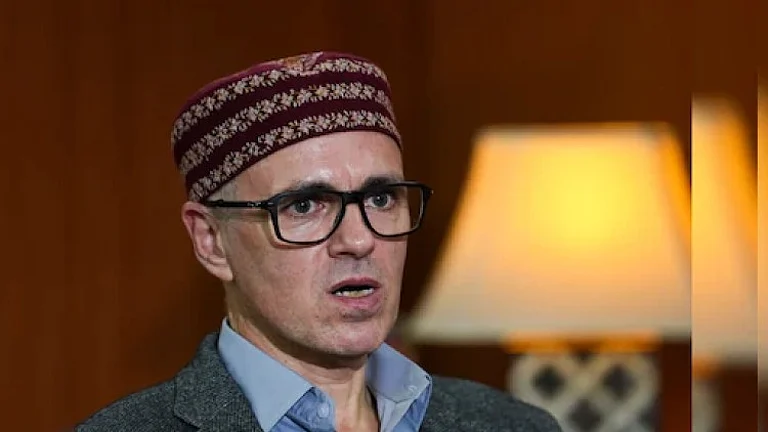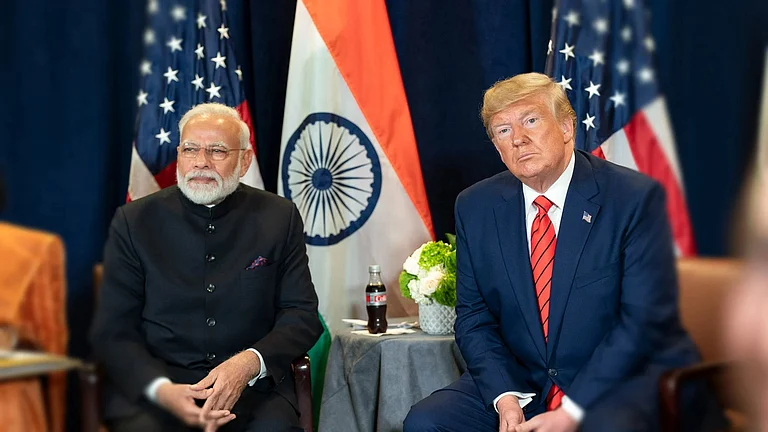The developing Ukraine-Russia conflict is impacting global financial movement, including VC funding into start-ups. Indian start-ups, which witnessed a record $40 billion worth of investment being pulled into their ecosystem in 2021, could see a drop in the dollars coming in with the US economy getting indirectly affected by the war. Anand Daniel, partner, Accel, speaks with Outlook Business about the overall impact of the crisis on the Indian funding scene, if India stands an advantage over China and whether it is a good time to launch an IPO. Edited excerpts:
Orion Venture Partners’ The Indian Tech Unicorn Report 2021 said that Indian start-ups raised $42 billion in 2021, up from $11.5 billion in the previous year. Do you see the trend continuing this year?
The dollars coming into India grew almost 4x last year—from the $10-billion range, it went to north of $40 billion. It was mainly driven by a couple of things—high digital penetration leading to a growing number of online shoppers and expansion of the domestic digital economy to about $250 billion. Plus, India saw $800 billion in UPI transactions last year—a really big driver for digital adoption. Other things like digitisation of small and medium-sized businesses and the number of goods and services tax registrations also went up.
The digital economy, adoption, payments, etc. are growing across sectors and are driving capital inflow but investors also want the outflow. Last year, liquidity went up to almost $18 billion in the Indian market as a large number of venture-backed companies went public. That is also an important thing to close the loop.
While it is tough to predict where exactly things will be this year, I believe there will be a bit of a slowdown mainly because globally, the public markets have corrected quite a bit and also because of the current geopolitical situation. Having said that, the enthusiasm for the India market still remains and it is fundamentally very strong.
How do you see the current geopolitical situation impacting the global funding ecosystem in view of the West’s strong response in the form of sanctions on Russia?
Overall, public markets have taken a hit globally. India has also gone down. On a relative basis, the multiples that Indian tech start-ups are getting is healthy—almost one-and-a-half to two times more than what their global peers are getting. Whenever there is a major shift in the public markets and there is a drop in the overall market cap, it tends to trickle down to the private markets as well—from developed markets to developing markets like India. But, on the public market front, India is holding on decently. On the activities front, things have been going on in the VC side in the last couple of months. We will see how it fares over the year.
Why are Indian start-ups garnering more industry interest and funds as compared to their global peers?
Growth in the digital economy, availability of high-quality talent and the fact that every sector here is booming is what is driving the entrepreneurial activity. Also, if you look globally, VC activity tends to go through these growth spurts—which are now happening in India. Previously, it used to go towards China but because of some shifts in the political systems in China, India has become a lot more interesting.
India is attracting a lot of global funds and the same ones are invested in China as well. Do you see a change in that trend going forward?
Many investors who have invested in both the geographies are more focused on finding newer opportunities due to the current geopolitical issues. They were already aware of India but now they are a lot more focused towards India, given what is happening on the China side. But, it is not just that. It ties back to the amount of digital growth and high-quality companies, making India a highly favoured destination for all these investors.
In fact, an anti-China sentiment has been going on for the past two or three years. The interest in India, irrespective of whatever is happening in China or elsewhere, is going to be there. The GDP is already large and growing. Very few countries have witnessed this kind of digital payments adoption—India has gone ahead of China in this regard. Even companies like Google have said that the UPI stack is a model to learn even for the US.
Has Accel halted any of its investments owing to the global crisis?
On the India front, we have always been careful where we commit. We just raised a new fund and are actively looking to invest. So far, there has been no change in how we invested last year versus how we are trending this year. It is still early days so we will see how the year goes. Last Diwali, we launched Accel Atoms, a new initiative where we offered $250,000 as an uncapped loan to any start-up at the pre-seed stage. After getting 3,000 applications within a month, we have launched the second cohort and applications are being invited as we speak.
In the current scenario, do you think India will see more local investors evolving in the start-up ecosystem?
India was already seeing more local VCs evolve because of the Small Industries Development Bank of India and other initiatives by the government that supported local funds. I hope that will continue. If you look at global VC funding, India is probably less than 10% of the overall local investment funding market. Will the present conflict slow down interest for investors in India? I don’t think so. The fundamentals of India are strong and VCs are always looking at long-term horizons.
Should the biggest IPOs planned for this year be stalled? What should be the strategy of such companies?
If the markets are down or there is a downward trend, it becomes tricky to list companies. I think companies will wait and watch until the markets kind of become steady or at least the geopolitical situation settles a bit and then go ahead with their plans to list.
From a strategy perspective, most of the companies that listed last year and the ones that are planning to list this year have mostly been doing well and are well-funded for a few years at least. Some of them also did pre-IPO rounds to shore up their balance sheet and prepare for rainy days. That is the best strategy. Be prepared, get ready but also be cognizant of the markets and wait it out if you feel it is not the right time to list.
You have invested in some of the top companies in the world that have defined the digital economy. Where do you see the next round of growth coming from?
We are actively investing in Southeast Asia as a region in the new fund that we are starting to deploy. This geography is super exciting. Accel Global has invested in the US and Latin America. Our Europe fund, based out of London, has invested across Europe as well as in Israel. We have also invested in Australia. As far as the sector areas are concerned, we are invested in local economies in India and Southeast Asia—consumer tech, fintech, healthcare and software companies that can solve problems for the global market.































